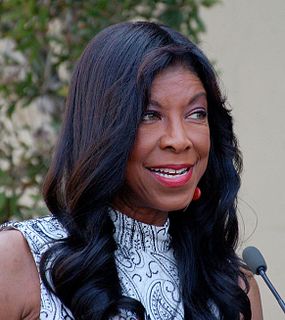A Quote by Ralph Waldo Emerson
We are not very much to blame for our bad marriages. We live amid hallucinations, and especial trap is laid to trip up our feet with, and all are tripped up first or last. But the mighty mother, who had been so sly with us, as if she felt she owed us some indemnity, insinuates into the Pandora box of marriage some deep and serious benefits, and some great joys.
Related Quotes
Some people think elections are a game: who's up or who's down. It's about our country. It's about our kids' future. It's about all of us together. Some of us put ourselves out there and do this against some difficult odds. We do it, each one of us, against difficult odds. We do it because we care about our country. Some of us are right, and some of us are not. Some of us are ready, and some of us are not. Some of us know what we will do on day one, and some of us haven't thought that through.
Nature has many scenes to exhibit, and constantly draws a curtain over this part or that. She is constantly repainting the landscape and all surfaces, dressing up some scene for our entertainment. Lately we had a leafy wilderness; now bare twigs begin to prevail, and soon she will surprise us with a mantle of snow. Some green she thinks so good for our eyes that, like blue, she never banishes it entirely from our eyes, but has created evergreens.
I love Elizabeth Taylor. I'm inspired by her bravery. She has been through so much and she is a survivor. That lady has been through a lot and she's walked out of it on two feet. I identify with her very strongly because of our experiences as child stars. When we first started talking on the phone, she told me she felt as if she had known me for years. I felt the same way.
Some things are up to us [eph' hêmin] and some things are not up to us. Our opinions are up to us, and our impulses, desires, aversions–in short, whatever is our own doing. Our bodies are not up to us, nor are our possessions, our reputations, or our public offices, or, that is, whatever is not our own doing.
Rhoda comes now, having slipped in while we were not looking. She must have made a tortuous course, taking cover now behind a waiter, now behind some ornamental pillar, so as to put off as long as possible the shock of recognition, so as to be secure for one more moment to rock her petals in her basin. We wake her. We torture her. She dreads us, she despises us, yet she comes cringing to our sides because for al our cruelty there is always some name, some face which sheds a radiance, which lights up her pavements and makes it possible for her to replenish her dreams.
Most of us feel on some level like race horses chomping at the bit, pressing at the gate, hoping and praying for someone to open the door and let us run out. We feel so much pent up energy, so much locked up talent. We know in our hearts that we were born to do great things, and we have a deep-seated dread of wasting our lives. But the only person who can free us is ourselves. Most of us know that. We realize that the locked door is our own fear.
Our sense of identity is in large measure conferred on us by others in the ways they treat or mistreat us, recognize or ignore us, praise us or punish us. Some people make us timid and shy; others elicit our sex appeal and dominance. In some groups we are made leaders, while in others we are reduced to being followers. We come to live up to or down to the expectations others have of us.
All kids draw and write poetry and everything, and some of us last until we're about eighteen, but most drop off at about twelve when some guy comes up and says, "You're no good." That's all we get told all our lives. "You haven't got the ability. You're a cobbler." It happened to all of us, but if somebody had told me all my life, "Yeah, you're a great artist," I would have been a more secure person.
The church, by and large, has had a poor record of encouraging freedom. She has spent so much time inculcating in us the fear of making mistakes, that she has made us like ill-taught piano students: we play our songs, but we never really hear them because our main concern is not to make music to avoid some flub that will get us in dutch.
Growing up, I had really bad skin. I had a skin disorder. Yes, I did. And my mother went to great lengths to try to find something to remedy it. I remember she took a trip to Madagascar and came back with all these alternative, medicinal herbs and stuff. They didn't smell so good, but I think they worked some magic.
Music is the one art we all have inside. We may not be able to play an instrument, but we can sing along or clap or tap our feet. Have you ever seen a baby bouncing up and down in the crib in time to some music? When you think of it, some of that baby's first messages from his or her parents may have been lullabies, or at least the music of their speaking voices. All of us have had the experience of hearing a tune from childhood and having that melody evoke a memory or a feeling. The music we hear early on tends to stay with us all our lives.










































